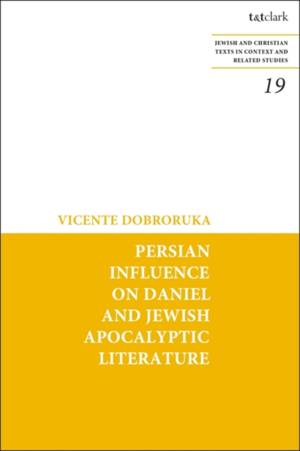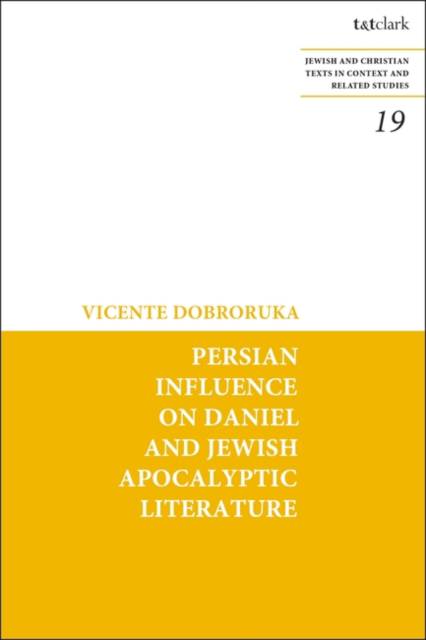
Bedankt voor het vertrouwen het afgelopen jaar! Om jou te bedanken bieden we GRATIS verzending (in België) aan op alles gedurende de hele maand januari.
- Afhalen na 1 uur in een winkel met voorraad
- In januari gratis thuislevering in België
- Ruim aanbod met 7 miljoen producten
Bedankt voor het vertrouwen het afgelopen jaar! Om jou te bedanken bieden we GRATIS verzending (in België) aan op alles gedurende de hele maand januari.
- Afhalen na 1 uur in een winkel met voorraad
- In januari gratis thuislevering in België
- Ruim aanbod met 7 miljoen producten
Zoeken
Persian Influence on Daniel and Jewish Apocalyptic Literature
Vicente Dobroruka
€ 67,95
+ 135 punten
Omschrijving
Vicente Dobroruka explores Iranian influence on Second Temple Judaism, providing a new explanation of Persian culture and history in the context of biblical accounts by focusing on the spread of Zoroastrian ideas in the period c.300 BCE-200 CE.
Dobroruka begins his investigation with an overview of the problems posed by a dualistic worldview-he examines the Indo-European origins of Zarathushtra and his ideas, explores the long-term implications for the notion of free-will, and clarifies the lightness/darkness paradigm that originated in Persia. Following this, Dobroruka discusses a variety of concepts that illustrate this influence, such as the role of matter and the material world, aspects of dualism and the cosmic struggle, the perspectives on the rewards for the just and the opposing punishments for the wicked, the idea of an 'Anointed One', shamanistic visionary experience, the resurrection, and the concepts of Sheol and Paradise.
Dobroruka begins his investigation with an overview of the problems posed by a dualistic worldview-he examines the Indo-European origins of Zarathushtra and his ideas, explores the long-term implications for the notion of free-will, and clarifies the lightness/darkness paradigm that originated in Persia. Following this, Dobroruka discusses a variety of concepts that illustrate this influence, such as the role of matter and the material world, aspects of dualism and the cosmic struggle, the perspectives on the rewards for the just and the opposing punishments for the wicked, the idea of an 'Anointed One', shamanistic visionary experience, the resurrection, and the concepts of Sheol and Paradise.
Specificaties
Betrokkenen
- Auteur(s):
- Uitgeverij:
Inhoud
- Aantal bladzijden:
- 264
- Taal:
- Engels
- Reeks:
Eigenschappen
- Productcode (EAN):
- 9780567705297
- Verschijningsdatum:
- 30/11/2023
- Uitvoering:
- Paperback
- Formaat:
- Trade paperback (VS)
- Afmetingen:
- 156 mm x 234 mm
- Gewicht:
- 371 g

Alleen bij Standaard Boekhandel
+ 135 punten op je klantenkaart van Standaard Boekhandel
Beoordelingen
We publiceren alleen reviews die voldoen aan de voorwaarden voor reviews. Bekijk onze voorwaarden voor reviews.









